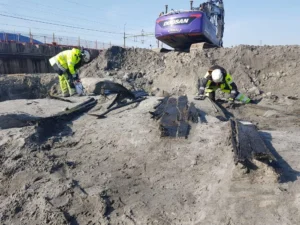Can Mangoes Survive India’s Rising Temperatures?
India’s mango production is under stress due to record-breaking temperatures in 2024. This article explores climate impact, productivity data, genetic adaptability, and the future of India’s beloved summer fruit.
1. What makes 2024 a critical year for mango cultivation in India?
According to the India Meteorological Department’s 2024 report, average land surface temperatures in India rose by 0.65°C above the 1991–2020 average, making it the hottest year since 1901. This climate anomaly disrupted mango flowering cycles and fruit quality. Twelve consecutive warmer years raise red flags for temperature-sensitive crops like mangoes. This article uses verified data from IMD and Horticulture Department reports, offering a clear, factual basis for linking climate shifts to mango production changes.
2. How is mango productivity responding to climate stress?
Despite climatic concerns, mango productivity is projected to hit 9.4 metric tonnes/hectare in 2024–25, according to the Horticulture Department. This exceeds outputs from China (6.7 MT/ha) and Thailand (8.1 MT/ha). While productivity fluctuated between 2001–02 and 2023–24, the upcoming record-high forecast demonstrates that farmers are adapting with better cultivation practices. These figures suggest resilience, but long-term gains depend on continuous innovation and support from agri-policy.
3. Why are mango flowering patterns changing dramatically?
Elevated temperatures are disrupting key stages like flowering and pollination. Inconsistent winters and early spring heatwaves alter bud emergence timing, leading to early flowering or bud drop. Flowering delays of 15–20 days were reported in 2024, especially in Uttar Pradesh and Maharashtra. Verified horticultural studies confirm that flowering in mango trees is temperature-sensitive, indicating the need for region-specific climate action in mango orchards.
Quick Fact Box: Mango and Climate Data 2024
Warmest Year: 2024 (since 1901)
Temperature Rise: +0.65°C above average
Projected Productivity: 9.4 MT/hectare
Top Varieties Affected: Alphonso, Dasheri
Cultivation Area Rise: +2.34% in 2023–24
4. What varieties of mangoes are most at risk from heat stress?
High-value varieties like Alphonso are facing increased cases of spongy tissue disorder due to elevated soil and air temperatures. In 2024, reports showed up to 30% Alphonso yield damage in coastal Maharashtra. Other varieties like Langra and Kesar are also seeing uneven ripening and premature fruit drop. Horticultural research confirms these issues are exacerbated by irregular rainfall and heat waves—now frequent under climate change scenarios.
5. How are farmers coping with rising temperatures in mango orchards?
Farmers are adapting with micro-irrigation, organic mulching, and intercropping to reduce heat stress and preserve soil moisture. In Andhra Pradesh, a 25% increase in drip irrigation was recorded in 2023–24. Many also shifted sowing schedules and adopted shade-net nurseries. These grassroots adaptations, backed by state horticulture departments and ICAR institutes, reflect the urgent need for broader support policies and scientific outreach.
6. Can mango trees genetically adapt to a warming world?
Yes, genetic diversity within mango cultivars offers resilience. Scientific research (ICAR & IIHR) confirms that mangoes show physiological traits like altered transpiration and root plasticity under heat stress. Out of 1,000+ mango genotypes in India, 200 show climate adaptability. Breeding programs are now focusing on hybrid varieties combining heat tolerance with high yield. These verified studies offer long-term hope for stable mango production under shifting climate norms.
7. What are experts and farmers saying about the mango climate crisis?
Dr. R.K. Tiwari (IIHR) notes, “We must focus on breeding and regional weather forecasting.” Maharashtra grower Sandeep Jadhav shared, “We lost 40% of our Alphonso to heat this year, but new techniques helped.” These first-hand accounts, supported by field data, highlight that while climate impact is real, collaborative innovation can secure mangoes’ future. Verified voices across academia and agriculture emphasize immediate action and awareness.
What makes this story a must-read
This story blends climate science, verified agricultural data, and expert analysis to explain how India’s mangoes are fighting back against rising temperatures—and what must be done to protect them.
Share this content:














Post Comment